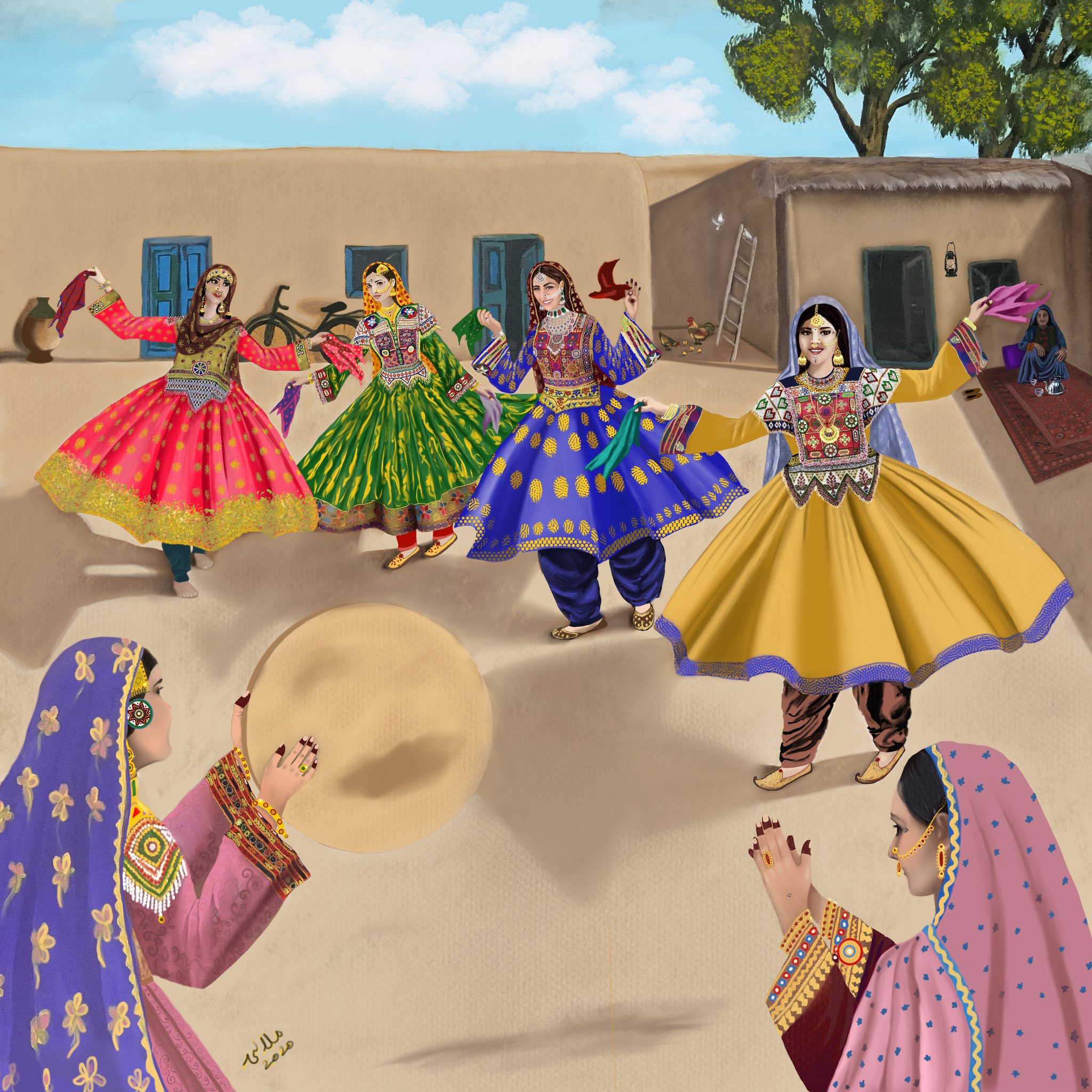An online campaign protesting against the Taliban’s strict new dress code for female students has been started by Afghan women. Using hashtags like #DoNotTouchMyClothes and #AfghanistanCulture, Afghan women are sharing pictures of their colourful traditional dresses. BBC spoke to the woman who started this social media campaign.
Bahar Jalali, a former history professor at the American University in Afghanistan, said she used hashtags such as #DoNotTouchMyClothes and #AfghanistanCulture to reclaim their traditional clothes. She told BBC she started the campaign to protect “Afghanistan’s identity and sovereignty”.
Afghan traditional clothes are unique. They have handmade embroidery and heavy designs, small mirrors placed carefully around the chest, skirts long and pleated, perfect for twirling during “Attan” or Afghanistan’s national dance. Some women sport embroidered hats, others wear heavy headpieces, depending on which region of Afghanistan they come from.
Also read: Out of 80 women, only 12 made it back to their job after Taliban takeover
20 years ago, women used to wear scaled-back version of similar dresses every day to university or their place of work. But the photos of women in black abayas, covering their faces and hands, circulated last week from a pro-Taliban rally in Kabul have been a huge contrast.
Posting a picture of herself on Twitter in a green Afghan dress, the former professor urged other Afghan women to share “the true face of Afghanistan”.
She said the attires that you’ve been seeing in the media [referring to those worn by women at the pro-Taliban rally] was not their culture.
According to BBC, every region of Afghanistan has its own traditional clothes but, despite the diversity, they all share a common theme: lots of colour, mirrors and embroidery. And the women share the same thought – that their clothes are their identity.
Spozhmay Maseed, a rights activist based in Virginia, tweeted a photo and wrote Afghan women love colours and modest attires, adding that black burqa was never been part of their culture.
Lima Halima Ahmad, a 37-year-old Afghan researcher and founder of Paywand Afghan Association, told BBC she posted the photo because Afghan women wear their culture with pride. “Our culture is not dark, it’s not black and white – it’s colourful and there is beauty, there is art, there is artisanship and there is identity,” she added.
Malali Bashir, an Afghan journalist based in Prague, also tweeted a photo and said she wanted to “show the world the beauty of our culture”.
According to Taliban officials, women will be able to study and work in accordance with sharia law and local cultural traditions, but strict dress rules will apply.







